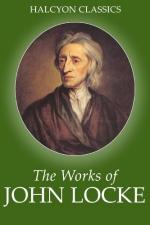
|
| Name: _________________________ | Period: ___________________ |
This quiz consists of 5 multiple choice and 5 short answer questions through Chapters 1-5, pp. 115-139.
Multiple Choice Questions
1. Who cannot give the injured party satisfaction?
(a) The injured party.
(b) The offender.
(c) Locke.
(d) The magistrate.
2. What do most laws exist for?
(a) To regulate marriage.
(b) To relinquish slave owner rights.
(c) To regulate and preserve property.
(d) To distribute property.
3. What does Locke define political power as?
(a) The power of a husband over a wife.
(b) The power that a magistrate has over a subject.
(c) The power of a father over a child.
(d) The power of a master over a slave.
4. What does political power directly affect?
(a) The literacy of a nation.
(b) The equality between men and women.
(c) The disposal of property.
(d) The distribution of wealth.
5. Who has joint dominion over the children in Locke's opinion?
(a) King James and his wife.
(b) Father and mother.
(c) The king and queen.
(d) Slaves and slave owners.
Short Answer Questions
1. How could the premise of divine rights be destroyed?
2. What does Locke argue about the inheritance of power and the right to rule?
3. How does Locke differ in his perception of Eve as compared to Filmer?
4. Whose absolute authority does Locke question?
5. What happens upon the death of Adam according to Filmer?
|
This section contains 299 words (approx. 1 page at 300 words per page) |

|




